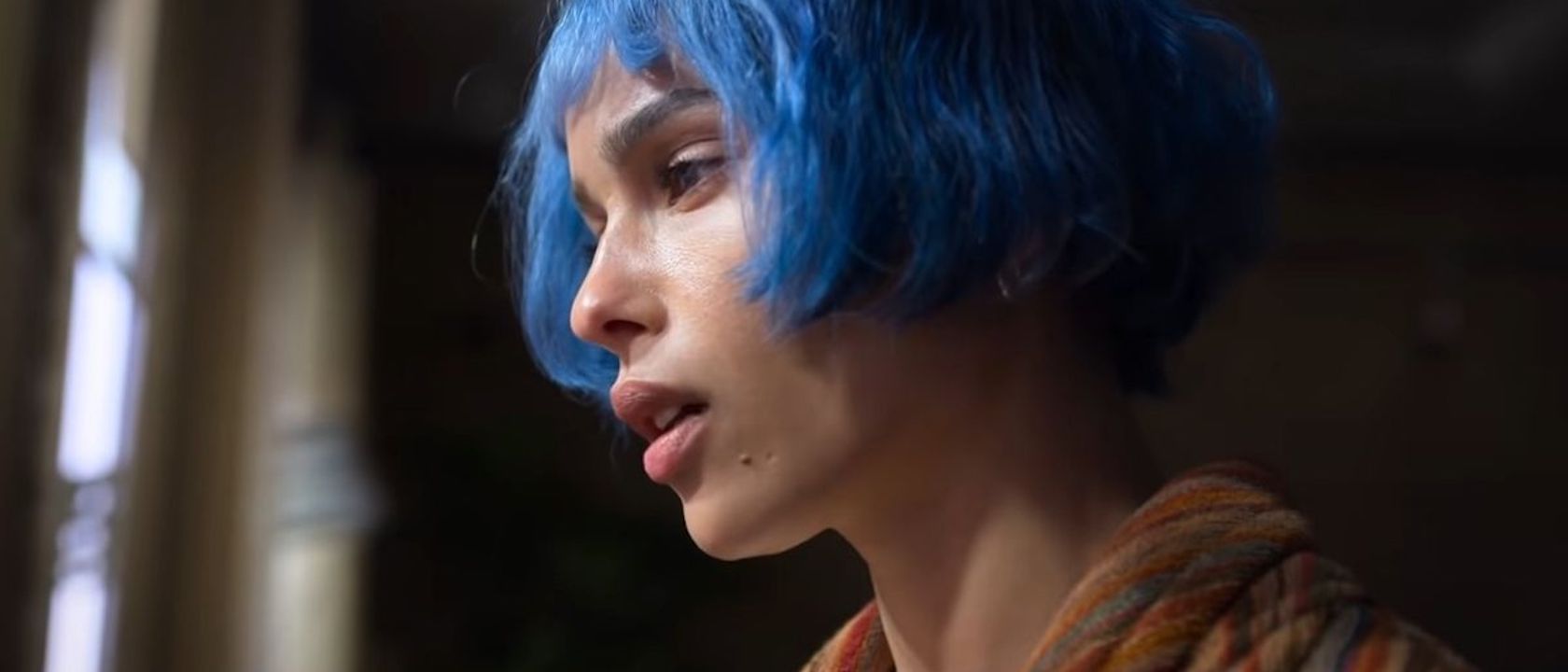It has almost been exactly two years since we all first experienced a life stuck at home when lockdowns went into effect across the globe thanks to COVID-19. It was during this time that we all became more accustomed to taking part in work video calls, carrying hand sanitizer around more than usual, and even finding unlikely ways to forge new connections. It is from that angle that Steven Soderbergh’s Kimi begins, but our protagonist, Zoë Kravitz’s Angela, is not only navigating a pandemic – she’s also an agoraphobic tech worker listening in on audio data from a digital assistant called “Kimi” in the middle of it all.
While most recent releases have ignored the pandemic all together, the audience quickly catches on that Kimi takes place in our era of mask mandates. There will be a familiarity here for many of us as Angela goes about her day at work with her home setup – yet her job is more specific, as she listens in on commands people give to Siri/Alexa knockoff “Kimi” to improve its intelligence.
Kimi is appealing thanks to Zoë Kravitz's performance and the direction of Steven Soderbergh, who develops a particular flair for the Seattle-set pandemic era movie, but beyond that, you’ve seen this story unfold before and better. The script penned by David Koepp – who previously wrote Jurassic Park, Panic Room and Spider-Man, but more recently has been a part of more flops than classics, like 2017’s The Mummy and Mortdecai – doesn’t take big swings in a nail-biter that is primed to shock its viewers, and it ends up instead being a relatively routine entry in the thriller genre.
Kimi is a pandemic-era set Rear Window with a digital assistant sidekick.
There’s a slick setup at play here as Zoë Kravitz’s Angela goes about her work day listening to the random moments in others days when they call upon Kimi to ask a question, give a command or throw out an insult in a moment of loneliness. The idea of centering a film on a young woman who has the access to invading the privacy many of us give away in the technology era is intriguing and hooks right away. Once she comes across a “stream” that she is confident is the sound of someone's murder, it’s gripping to see how she decides to go about helping and the reactions of her higher-ups.
Kimi also plays tribute to Rear Window in many aspects and ties it to the COVID-19 era, with Angela’s place and neighborhood having large windows to peer in and out of. There’s a few characters in play from the building across the street that are implemented in a unique way as the story progresses. Kimi briefly explores the pros and cons of the connection a digital assistant can provide, especially in times of isolation, but it feels as though this clever concept had a missed opportunity to be explored with more wit.
Zoë Kravitz does great character work, but the script falls short.
Zoë Kravitz has rarely in her career put a whole big screen storyline on her shoulders, but in Kimi the actress gracefully carries the weight. Kravitz portrays a difficult, introverted character who we learn about through a day in the life, rather than the movie going down the flashback road. Angela is motivated by her fixated passions that she must get to the bottom of before moving on. Kravitz is alluring to watch on screen as Steven Soderbergh’s direction complements in highlighting the small details of the character.
Even though Kimi’s story around her isn’t particularly great, Kravitz makes the watch worthwhile as the audience finds themselves captivated by what she’ll do next despite the character's limitations. The third act in particular creates mixed feelings regarding what David Koepp’s intentions are with Angela. On one hand, the final act becomes a fun Die Hard-esque one-woman survival story, but Kimi’s character development doesn’t ultimately serve her or develop her arc in the meaningful way it likely thinks it does.
Steven Soderbergh brings an engaging spunk to Kimi that makes up for this otherwise routine thriller.
Aside from a great Zoë Kravitz’s performance, Steven Soderbergh brings a stylish eye to Kimi. The pandemic thriller doesn’t have a lot of scale or dialogue to work with, and the Contagion and No Sudden Move director uses this to his advantage and works with production design and cinematography that significantly adds to the suspense and eeriness of the film. Navigating the protagonist's solitary lifestyle, Soderbergh’s direction feels like another main character in Kimi.
With a director like Soderbergh, who has such a massive filmography, it’s rare for this kind of talent to go back to basics and make a more intimate project. For fans of the filmmaker, Kimi is ultimately a solid reminder of his talent; it’s just a shame the script isn’t stronger.

Sarah El-Mahmoud has been with CinemaBlend since 2018 after graduating from Cal State Fullerton with a degree in Journalism. In college, she was the Managing Editor of the award-winning college paper, The Daily Titan, where she specialized in writing/editing long-form features, profiles and arts & entertainment coverage, including her first run-in with movie reporting, with a phone interview with Guillermo del Toro for Best Picture winner, The Shape of Water. Now she's into covering YA television and movies, and plenty of horror. Word webslinger. All her writing should be read in Sarah Connor’s Terminator 2 voice over.











